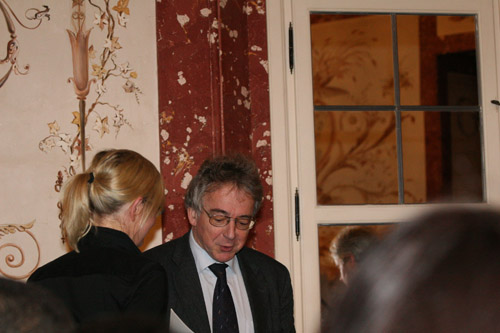
Fighting the war on poverty with high quality early childhood education programs is an issue discussed and supported by numerous contributors to La Búsqueda Global para la Educación serie. Researchers, educators and policy makers have argued that vital learning can and should begin before age 5. When schooling starts for poor children at kindergarten or first grade they have already missed out on vital opportunities to develop skills needed to help them thrive academically, socialmente, física y emocionalmente en sus primeros años de aprendizaje.
Hoy en La Búsqueda Global para la Educación, es un honor para nosotros compartir los puntos de vista del profesor Dr.. Wolfgang Schneider en el aprendizaje preescolar y otras materias relativas a los sistemas de educación alemán y otros.
DR. Wolfgang Schneider is currently Professor of Psychology in the Department of Psychology, University of Wurzburg, Alemania. His research interests include the development of memory and metacognition, giftedness and expertise, the development of reading and spelling, as well as the prevention of reading and math difficulties. He was Vice President and President of the German Psychological Society (2000-2004), and also Vice President of the University of Würzburg (2004-2009). He is author and co-editor of about 40 libros, Incluido Desarrollo de la memoria entre dos y veinte, which he co-authored with Michael Pressley. He is currently President of the International Society for the Study of Behavioral Development (ISSBD).

Hay una serie de puntos de vista mencionados en los EE.UU. que la educación pre-escolar hace una diferencia significativa en el éxito de los niños en la escuela primaria. ¿Cuáles son los elementos esenciales de esta educación y cuál es el impacto en el desarrollo del niño? ¿Cree que puede tener un impacto significativo sobre la brecha de logros entre los niños ricos y los pobres?
Early language skills have to be developed. This is something that the German government is trying to intensify at the moment. We have made some progress regarding the phonological training programs in our country. We also have evidence that training children in phonological awareness helps them to develop the first stages of reading and spelling in school. We have evidence regarding early math training programs too and there are a few rather effective approaches there.
Así que ha habido evidencia de que los programas de pre-escolar prematuro hacer una diferencia, particularly for kids at risk. We did a couple of studies with children at risk and compared their improvement with normally developed children. We found that children at risk really can catch up if they have training in the early years. And when they are able to move up to the same level as normal kindergarten kids, que parecen ser capaces de desarrollar bien en la escuela.
What is the nature of the kindergarten training programs that you designed and what impact has it had on the mental development of children? Are the programs equally as effective with affluent and poor?
We designed a popular training program with two components. One focuses on phonological awareness in both the broad and narrow sense. Phonological awareness in the broad sense would be something like rhyme identification or syllable segmentation. Phonological awareness in the narrow sense means identification of phonemes in syllables. We found it was possible to get German speaking kindergarten children to identify phonemes in syllables and words, and those kids who satisfied that criteria were able to acquire reading and spelling skills earlier than usual. We combined the phonological awareness training with letter-sound coordination training. And so for some frequently used letters, we taught children how they link to phonemes. This helped the children pick up the letter phonemes training in school. We had control groups in our studies that did not receive phonological training but participated in the usual kindergarten program. Thus we were able to compare kids who were trained and kids who did not participate. We discovered that the trained kids had an advantage by the end of kindergarten and kept that advantage during their first years in school. It’s very important that there was a long lasting effect here. Particularly with kids who had poor initial skills.
En este momento estamos desarrollando un programa de educación temprana para niños de jardín de infantes para todos 16 estados en Alemania. Vamos a terminar nuestra propuesta al final de 2012.
Do you think that the PISA test is an effective measure of the full range of mental aptitudes of students?
I don’t think it’s an effective measure of the full range of mental aptitudes. It does give you a good impression of 15-year-old students’ reading skills, math skills and their ability to cope in the science area, but we don’t get any evidence about their intellectual abilities. En 2000 we included a measure of non-verbal intelligence in a German extension of the PISA study which compared performance among the 16 German states and which was based on a large sample of about 50,000 estudiantes. When we assessed the impact of intelligence on performance in math, reading and science, we figured out that non-verbal intelligence was a strong predictor in most of these tests.
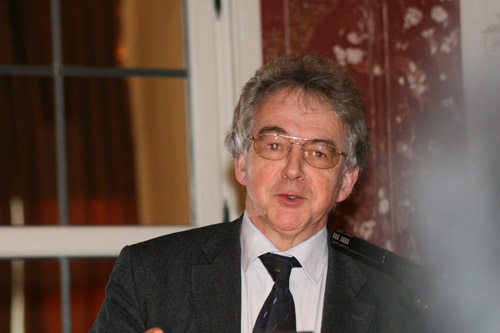
Do you think that in some countries, teaching to the PISA test is now occurring?
I think that this probably does happen and I think that is a problem. Sin embargo, I also believe that the way the PISA organization process works makes it difficult. In Germany for example, schools are selected at random. And there is almost no chance for a school to escape once it has been selected. I suppose there could be a couple of schools in the sample that have practiced for the test but we don’t think that would apply to the entire sample.
Do you think that some countries have educational curricula that provide better preparation for the test than others? Does it surprise you that “grinder” countries like South Korea and less structured countries such as Finland both do very well on the test?
As to the impact of different educational systems on the results of the PISA test, it seems very difficult to come up with clear-cut conclusions. You have a diverse group of countries included in the PISA sample with different educational systems, so you have to be very careful when you compare. Sin embargo, the achievement patterns observed for the various PISA samples that we’ve seen from 2000 a 2009 seem to be rather consistent for most of the countries participating. The countries at the top for reading and math, como Finlandia y los países asiáticos, son famosos por sus programas de estudios superiores en estos ámbitos y de sus programas de formación competentes. Así que su excelente rendimiento no parece ser sorprendente.
El sistema educativo finlandés realmente se centra en todos los niños, incluyendo los niños débiles, en las aulas. Como consecuencia, the achievement variance in Finnish children is much smaller than the variance in children in most other countries. So Finland is successful with bringing all their children up to a high level, which many other countries do not achieve.
When you look at the instructional procedures in a country like South Korea, you see that there is a lot of drilling and practice and very heavy workloads on the students. This is something we do not have in Germany. So I think the quantity of instruction in South Korea makes a big difference here. In former times, Benjamin Bloom in the US already noticed that the quantity of instruction and the time given to reach a criterion is usually a good indicator of student outcomes.
What are the key strengths and weaknesses of the German educational system as you see it?
In Germany we have different curricula in 16 different states. A couple of states, including Bavaria and Saxony, seem to do very well and may even compare with the Finnish achievement scores. The teachers follow the curriculum pretty strictly, which seems to make an impact. We have systematic findings that show while some of our states perform very well others perform poorly. Each state has its own policy. The policies differ a lot, and the states are not able to agree on a common curriculum. Our federal ministry of education has tried to change that but it is difficult as our law states that education must be linked to the state policy.
What is the mix of arts in the usual curriculum in Germany? How do you the see role of the arts in primary and secondary education?
I believe the arts are underestimated in our system. Whenever teachers have to cut hours in a curriculum, the arts get cut first. We have to change that. I believe the arts are important. I think we should start an arts education at the beginning of elementary school, which is not the case now. The major argument against the arts is always that kids shouldn’t do too much in the early years of their education where the emphasis must be on reading, escritura y matemáticas. Thirty years ago this was not the case as music education started earlier. Now that has changed and it is not a good development.
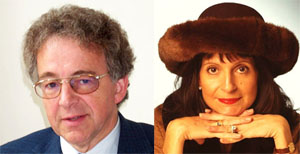
Fotos cortesía del Profesor Dr.. Wolfgang Schneider.
En La Búsqueda Global para la Educación, unirse a mí y reconocidos a nivel mundial los líderes de opinión, incluyendo a Sir Michael Barber (Reino Unido), DR. Michael Bloquear (Estados Unidos), DR. Leon Botstein (Estados Unidos), Profesor Clay Christensen (Estados Unidos), DR. Linda Darling-Hammond (Estados Unidos), DR. Madhav Chavan (India), El profesor Michael Fullan (Canada), El profesor Howard Gardner (Estados Unidos), Profesor Yvonne Hellman (Países Bajos), Profesor Kristin Helstad (Noruega), Jean Hendrickson (Estados Unidos), Profesor Rose Hipkins (Nueva Zelanda), Profesor Cornelia Hoogland (Canada), Señora. Chantal Kaufmann (Bélgica), DR. Eija Kauppinen (Finlandia), Secretario de Estado Tapio Kosunen (Finlandia), Profesor Dominique Lafontaine (Bélgica), El profesor Hugh Lauder (Reino Unido), Profesor Ben Levin (Canada), Profesor Barry McGaw (Australia), Shiv Nadar (India), Profesor R. Natarajan (India), DR. PAK NG (Singapur), DR. Denise Papa (Estados Unidos), Sridhar Rajagopalan (India), DR. Diane Ravitch (Estados Unidos), Sir Ken Robinson (Reino Unido), Profesor Pasi Sahlberg (Finlandia), Andreas Schleicher (PISA, OCDE), DR. Anthony Seldon (Reino Unido), DR. David Shaffer (Estados Unidos), DR. Kirsten Immersive Are (Noruega), Canciller Stephen Spahn (Estados Unidos), Yves Theze (Lycee Francais EE.UU.), Profesor Charles Ungerleider (Canada), Profesor Tony Wagner (Estados Unidos), Sir David Watson (Reino Unido), Profesor Dylan Wiliam (Reino Unido), DR. Marcos Wormald (Reino Unido), Profesor Theo Wubbels (Países Bajos), El profesor Michael Young (Reino Unido), y el profesor Zhang Minxuan (De China) a medida que exploran las cuestiones de educación cuadro grande que todas las naciones se enfrentan hoy. La Búsqueda Global para la Educación Comunitaria Página
C. M. Rubin es el autor de dos ampliamente leído serie en línea por la que recibió un 2011 Premio Upton Sinclair, “La Búsqueda Global para la Educación” y “¿Cómo vamos a Leer?” Ella es también el autor de tres libros más vendidos, Incluido The Real Alice in Wonderland.


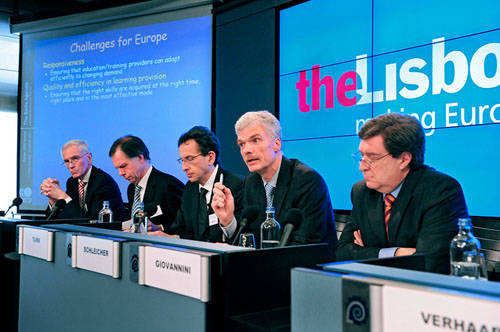
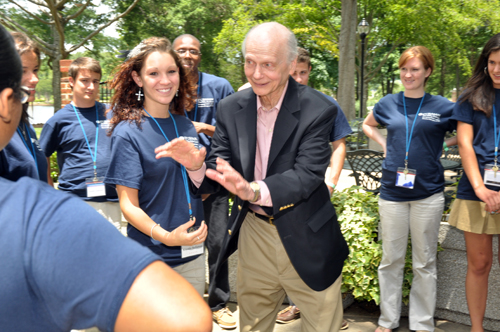


Comentarios recientes